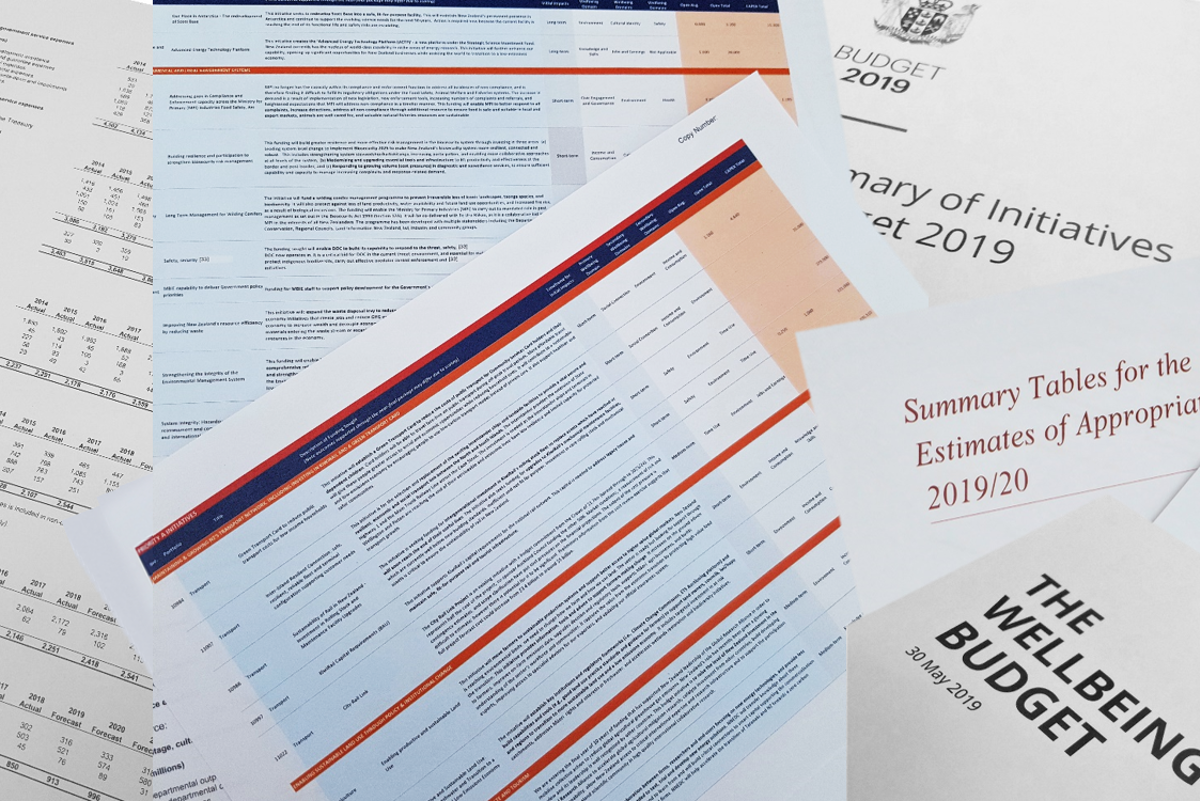Media release – Wellbeing budgets and the environment: A promised land?
Parliamentary Commissioner for the Environment, Simon Upton, is questioning whether the Government’s budget process is able to take into account the complexities and long-term nature of many environmental problems.
“The benefits that arise from protecting and conserving the environment – or trying to recover some of the damage we’ve caused – unfold over long time frames.
“This makes the natural environment difficult to slot into an annual budget process dominated by decisions orientated towards short-term outcomes,” the Commissioner says in a report released today.
“The more easily quantifiable benefits of social and economic initiatives can make it hard to pay equal attention to environmental spending proposals.
“The environment is not just one aspect of wellbeing. It is the foundation of our economy, our society and our culture.”
The report, Wellbeing budgets and the environment: A promised land?, examines the way the environment has – or has not – been incorporated into wellbeing budgets.
The report found that measuring or determining the value of the environment and its links to wellbeing is not easy.
Not only is the natural environment dynamic and complex, the environment and wellbeing are understood in different ways.
The report found there is broad agreement in Western and te ao Māori thinking that the environment is linked to both our economic and non-economic wellbeing now and in the future.
But there are also fundamental differences in world views. Central to a Māori perspective of wellbeing are whakapapa and mauri, where all things living and non-living are connected in reciprocal relationships through time.
In contrast, the analysis that informs wellbeing budgets emphasises the value we derive from the environment.
“The difficulty of accommodating different ways of seeing wellbeing is exacerbated by the inherent complexity of the environment, the often long-term nature of environmental impacts and the existence of thresholds or tipping points.”
The Commissioner has recommended several changes to the budget process to improve the way environmental considerations are handled and communicated through the different stages.
They include improving the capacity of the budget process to value the environment, and increasing the quality of information available to reflect what is known about future risks, uncertainty and tipping points.
The Commissioner also wants a review of the way cost–benefit analysis is applied to budget initiatives to ensure that budget proposals with enduring benefits for future generations are not effectively discounted away to nothing.
“I accept that, faced with virtually limitless claims and only finite resources, budgetary decisions involve trade-offs to ensure that resources are put to their best use.
“But if wellbeing is to be the lodestar of public expenditure, and spending on the environment has to be justified in relation to this goal, then links between the state of the environment and wellbeing need to be understood.
“These links are only tenuously developed, if at all.
“We need better information, better policy tools, and better integration of the environment into the budget process to ensure future generations don’t inherit a long list of problems that could have been avoided.
“Simply proclaiming that a budget is a wellbeing budget is not enough to shield us from the possibility of an intergenerational wellbeing disaster.”
Read the Commissioner's report, Wellbeing budgets and the environment: A promised land?
Note: This report is the last of three reports about environmental information the Parliamentary Commissioner for the Environment has undertaken, starting with a 2019 review of environmental reporting, followed by a 2020 review of publicly funded environmental research. A synthesis report will follow this year on how environmental reporting and the budget system might be formally linked.


